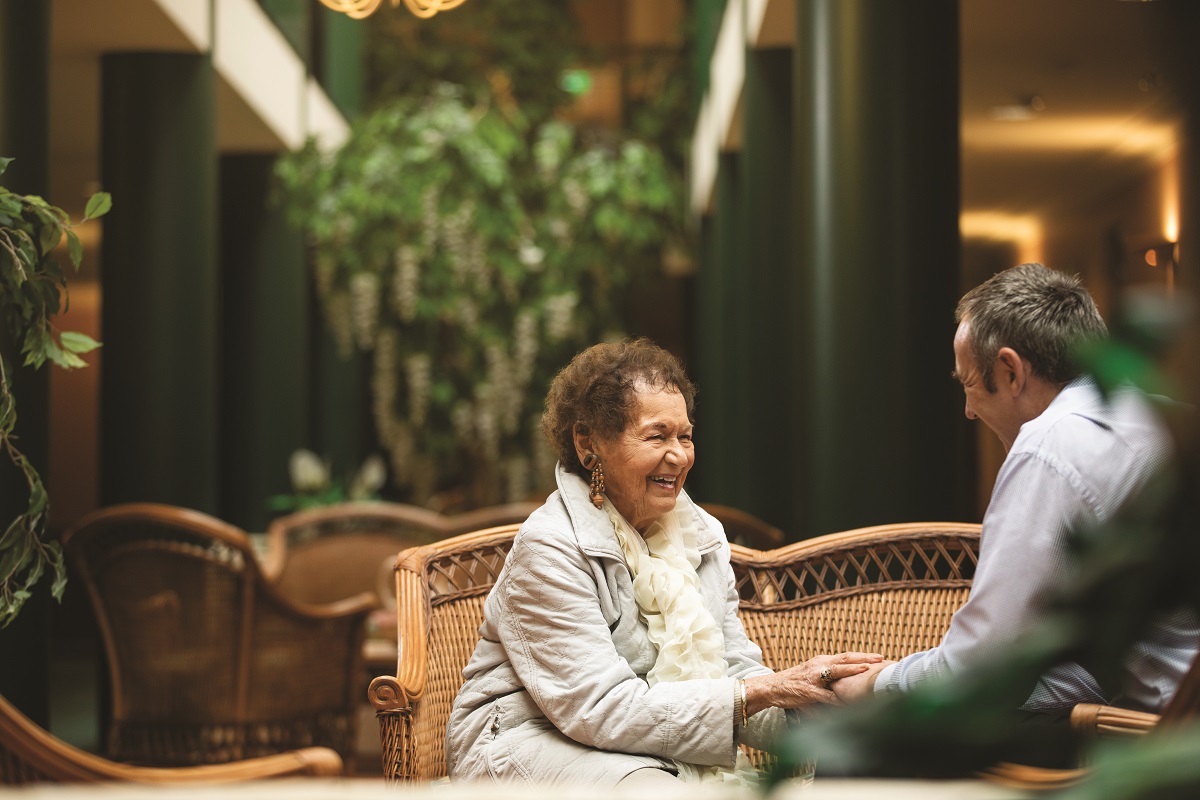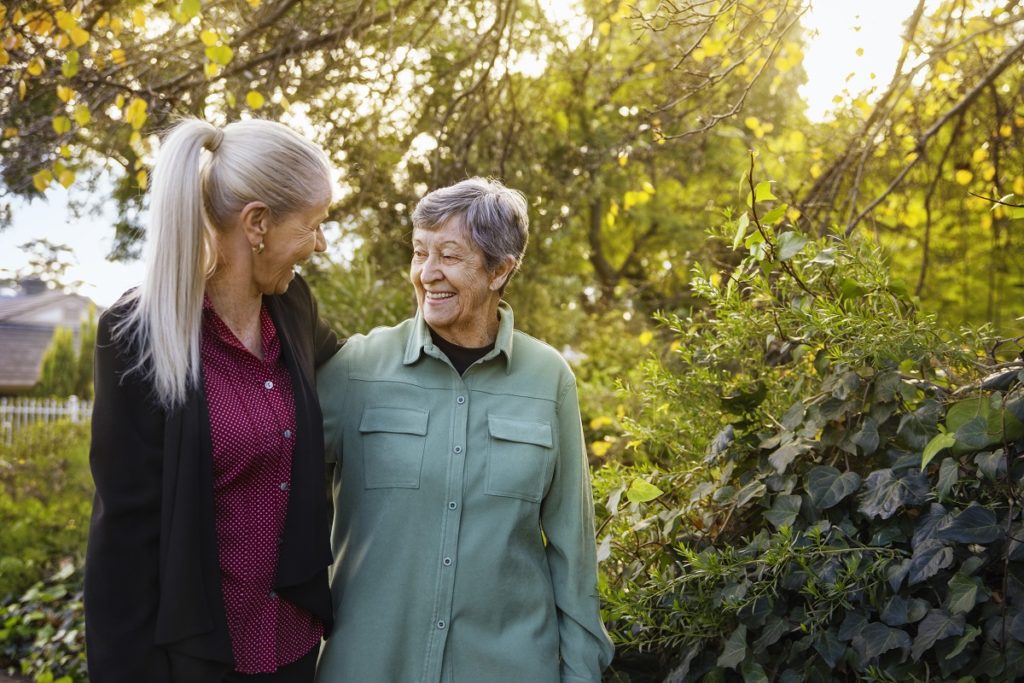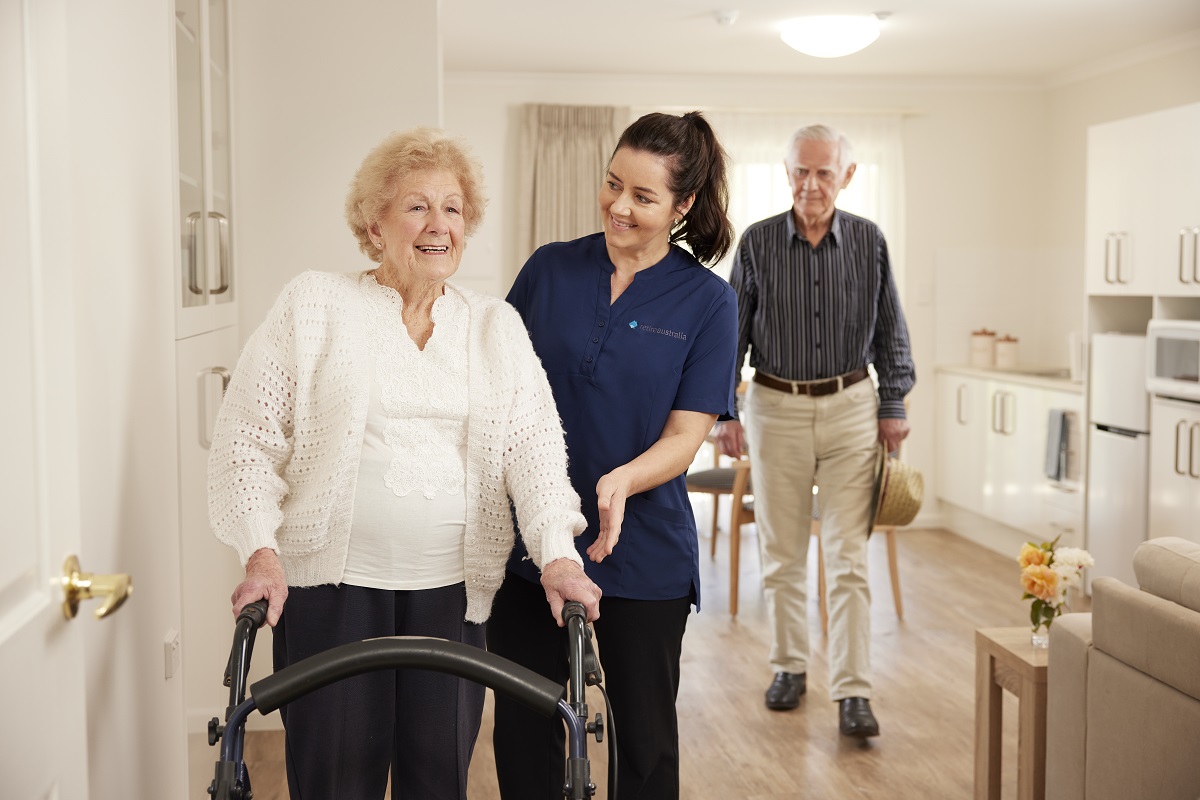
We all want to live independently and on our own terms, so recognising and accepting that you need assistance can be difficult at any stage of life. As we get older, we naturally start to struggle with things we could once do with ease. Often this can gradually creep up on us and those around us. It’s also easy to downplay or ignore issues, which can make it tough to know when an ageing loved one may need some extra support, but there are some signs to look out for.
“Sometimes it can be a combination of little things, and they may be happening slowly, so over time we don’t really see or acknowledge them, or take appropriate notice,” says RetireAustralia NSW Regional Care Manager Josh Campbell.
With a decade of experience in aged care, Josh understands the difficulties families can face and shares some tips on what to look for and how to approach what can be a difficult conversation.
Changing ways
You know your relative best, so most often you will be able to recognise when something may be amiss or not quite right during your regular catch-ups. If your dad is someone who likes to dress ‘just so’ or is always on time, it may be that you notice a scruffier appearance or that he is running late for a scheduled date. Or maybe your mum was an avid bowler or passionate theatre-goer and all of a sudden loses interest. These could be signs of something being not quite right. Noticing these kind of changes are, for a lot of people, the first indicators that an ageing loved one may need a little extra help. It can be upsetting to see people change in this way too.
“It can be a tough time, not only for ageing people, but it can also be a stressful time for anyone making decisions for their family,” Josh said.
Physical signs
Below is a list of some of the most common physical signs that could indicate an ageing loved one needs help.
- Change in weight: a sudden and unintentional change in weight could be a sign that they’re not eating or preparing the right meals, skipping meals or relying on fast foods.
- Bruises, scrapes or burns: wounds could indicate that there have been a change in mobility, falls or troubles with cooking. As we age, we often struggle with balance due to a loss in muscle mass and falls can become an issue.
- Poor hygiene or body odour: a result of not bathing regularly and a decrease in grooming habits. Sometimes there may be a fear of falling in the bathroom that’s preventing showering.
- Dirty or inappropriate clothing: wearing clothes that are stained or may not be suited to the weather could signal a struggle with dressing.
Financial signs
Being unable to handle finances and money can be another indicator that help is required. Here are some signs:
- Unopened letters or unpaid bills: a pile of unopened letters or bills could indicate someone is struggling to manage their finances.
- Utilities or internet being disconnected: this could be a sign that bills are not being paid.
Home maintenance signs
Changes around the home are another common way that people recognise a decline in their ageing loved ones. They include:
- A sudden change in housekeeping: a house that is ordinarily kept neat and tidy, or there are signs of clutter or hoarding.
- Appliances or cookware with burn marks: this could indicate a pot has been left unattended on the stove.
- Spoiled food in the fridge or pantry: food that is being neglected and not thrown away.
- Lack of food in the fridge or pantry: not enough food in the home could be a sign that grocery shopping in being forgotten or too hard to do.
- Rubbish not being cleared or taken out.
Cognitive and memory changes
Unfortunately, the risk of dementia increases as we age and while people can live independently for some time, some form of care and assistance will often be required. Some things you may notice include:
- Repeating questions and statements
- Forgetting to take medications or missing appointments
- Confusion: Being confused telling a story or unable to follow a group conversation.
- Getting lost while driving or walking
- Being unable to recall familiar names of people, things and places.
- Change in mood or personality: for example, if someone becomes depressed or is quick to anger, when they normally aren’t.

Having the care conversation
If you recognise some warning signs with an older relative, it can be difficult to sit down and broach the subject of care. It can be tempting to put it off, but the worst outcomes happen when the conversation is missed and a crisis occurs. If your loved one has a fall or becomes ill, you may have to make decisions on the go, which means they may not be what your relative or you really want.
Pick a time and place where you’re both comfortable. “Gently and informally start to discuss if they would be open to looking at additional care or assistance,” recommends Josh. “Ask them how they feel, what help they might need, and listen carefully to the answers, and remember to listen to what they might not be saying.
“Make sure you don’t approach them in a confrontational way or start blaming or shaming your loved ones. Ensure your visits and discussions aren’t interrogations or cause conflict. Start this conversation respectfully, with love, and sooner rather than later.”
For more ways to approach this important conversation, take a read of this blog.
Next steps
If your loved one is open to receiving some care, you could arrange an appointment to visit their GP with them for a chat. Here you can discuss organising a case conference to investigate what support your ageing relatives may need and what is available.
The website My Aged Care outlines the range of care and assistance available through the government.
For more information, you can also read about the care and support offered in our retirement communities including our very own alternative to aged care, Glengara Care.







